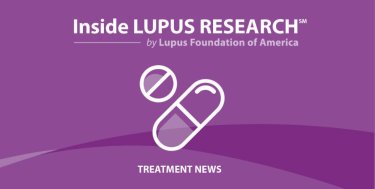
UCB and Biogen have announced positive Phase III clinical trial results for PHOENYCS GO study, evaluating dapirolizumab pegol, a new treatment for moderate-to-severe systemic lupus erythematosus (SLE). The primary outcome measure of the study was improvement of moderate-to-severe disease activity at week 48 using BILAG based-BICLA, an established endpoint measurement for clinical disease activity based on patient medical history, clinical examination, and lab tests.
Dapirolizumab pegol works by binding to the CD40L protein, blocking it’s ability to bind to CD40 which ultimately limits B cell activation and harmful subsequent autoantibody production observed in SLE. PHOENYCS GO (n=321) is a multicenter, randomized, double-blind, placebo-controlled, parallel group study. In the study, dapirolizumab pegol was shown to improve the condition of people with SLE after 48 weeks when added to the existing standard of care, compared to the placebo. In addition to reducing disease activity, the drug showed positive results in reducing disease flares.
Based on the successful outcome of the PHOENYCS GO Study, UCB and Biogen will be initiating a second Phase III study called PHOENYCS FLY in 2024. Researchers will also continue to monitor participants from the PHOENYCS GO study over a longer period in an open-label study, meaning both patients and providers of the treatment being given instead of being blinded to whether or not the person is receiving the placebo or actual drug.
Continue to follow the Lupus Foundation of America for updates on lupus drug developments and clinical trials. Learn more about treatments being studied for lupus.
This post was originally published on this site
